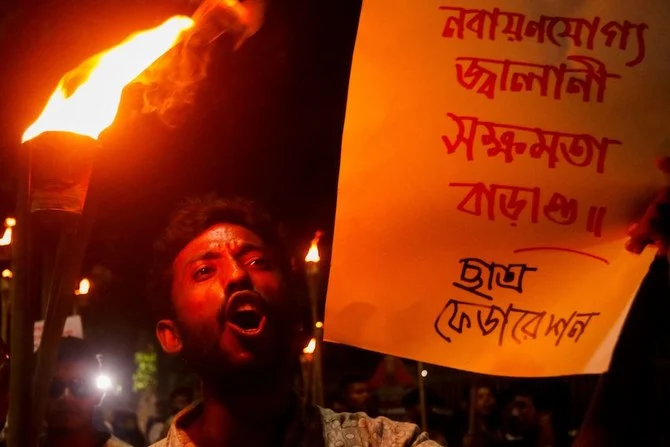News
Bangladesh hikes fuel prices to highest in history

Fuel prices Bangladesh have increased by more than 51 percent on Saturday, the highest increase in the nation’s history, despite the government’s claims that it is working to maintain normal oil supply.
The $416 billion economy of Bangladesh has been one of the fastest expanding in the world for years, but the nation has suffered with rising food and fuel prices, which have increased its import bill.
According to experts, the government started applying for a loan from the International Monetary Fund in July with the goal of building up its reserves as a cushion.
The price of petrol was increased by 51.1 percent and diesel by 42.5 percent, Dhaka announced late on Friday, leading to thousands of Bangladeshis racing to fuel stations nationwide to try to fill their vehicles before the hike went into effect.
According to a statement from the Ministry for Power, Energy and Mineral Resources, fuel subsidies caused the state-run Bangladesh Petroleum Corporation to lose more than 80 billion taka ($840 million) between February and July, which led to the price increase.
“There was no option but to increase the prices to keep the fuel oil supply normal,” Minister for Power, Energy and Mineral Resources Nasrul Hamid told reporters on Saturday.

Record breaking Bangladesh fuel hike sees huge queues at fuel stations
Hamid appealed for patience and acknowledged that the new prices “will not seem tolerable to everyone.”
“We are repeatedly asking everyone to be frugal, to save on fuel and to use cars less often because the transport sector is the biggest user of diesel,” he said.
“We will readjust the prices if they come down in the international market.”
In July, Bangladesh’s inflation rate reached 7.48 percent due to rising energy costs globally following Russia’s invasion of Ukraine, though oil prices have recently dropped down.
According to economists, the price hike that took effect on Saturday might have been conducted gradually because it is anticipated to have a significant negative impact on those who are already struggling due to increased living expenses.
“If the price hike was inevitable to reduce the losses, the government could have done it gradually. Like every six months, the fuel price could be increased by 4 to 5 percent. It would be much easier for the people to bear,” Asaduzzaman, former research director at the Bangladesh Institute of Development Studies, told Arab News.
Asaduzzaman said that he is worried about the effect on food supply in Dhaka, with many essential items transported from different parts of the country to the capital.
“This price hike will add to inflation tremendously as it will make the supply chain within the country much costlier. Food supplies will be impacted to the highest level,” he said.
“The poor will suffer most due to this fuel price hike.”
Higher fuel prices will “create huge pressure on people’s lives” and stoke inflation, Fahmida Khatun, executive director at the Center for Policy Dialogue in Dhaka said.
In Bangladesh, transportation, housing costs, electricity bills, industrial production, and irrigation, according to Khatun, will all immediately be affected by the hike.
The price increase will result in higher irrigation expenditures, according to Rajshahi City farmer Amir Hossain.
For those in my situation, who are poor, a 50% increase in petrol prices is simply intolerable. Even faster increases in living expenses are expected. Where, though, will I find the extra money? stated Hossain.













